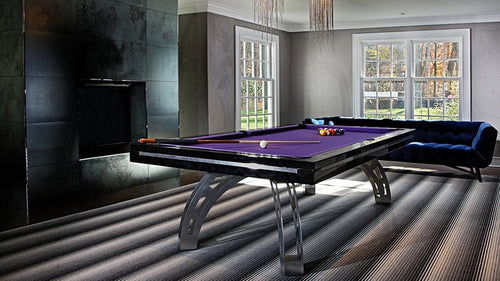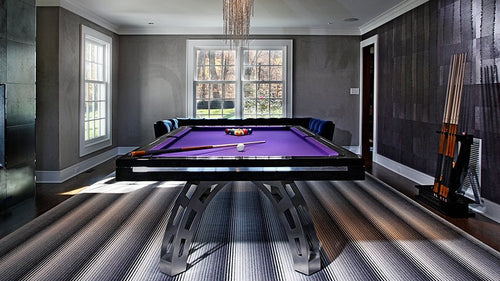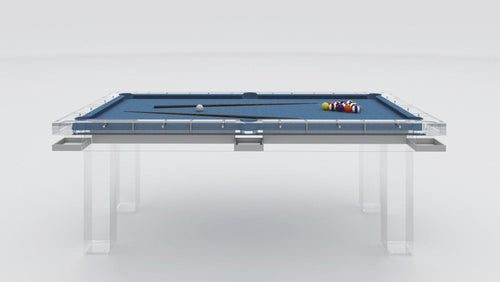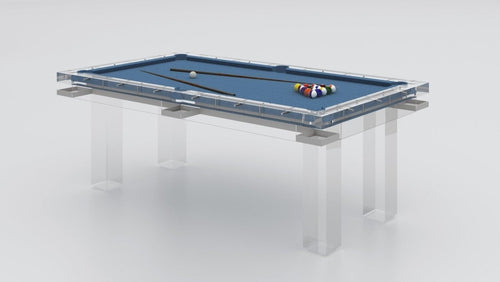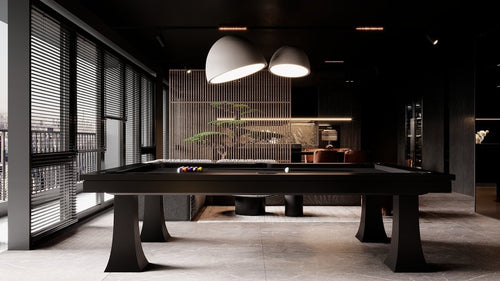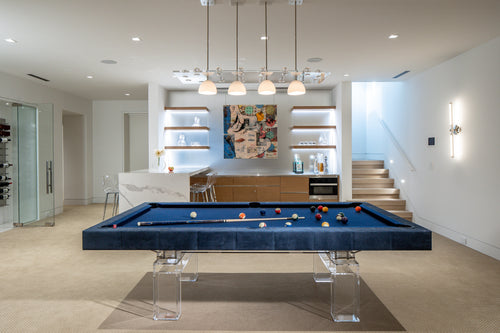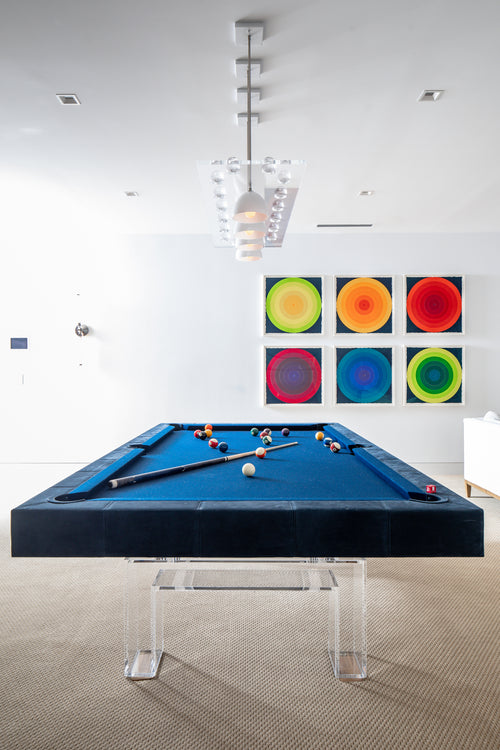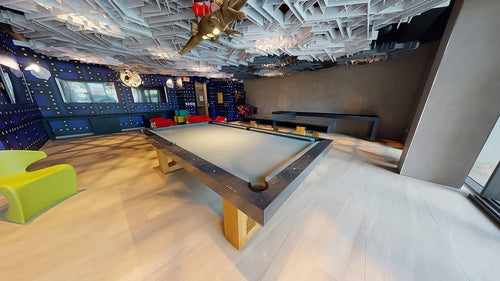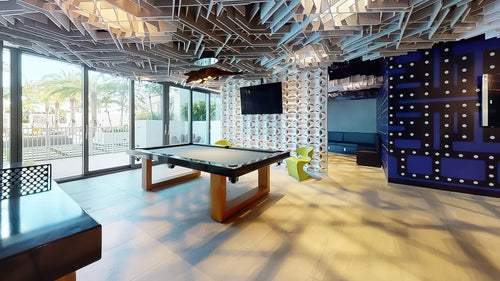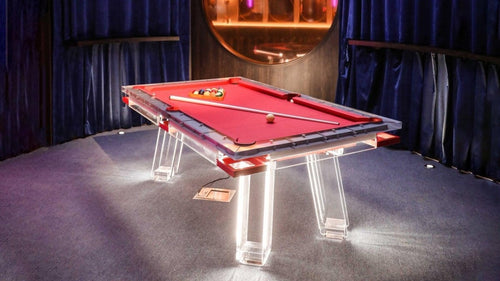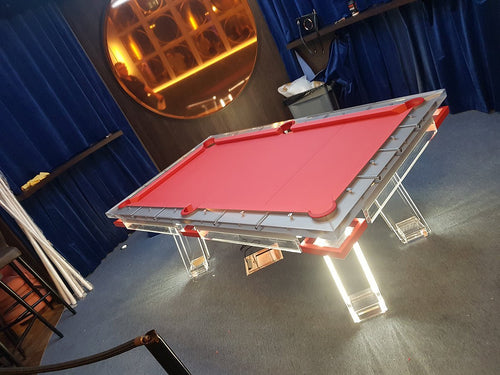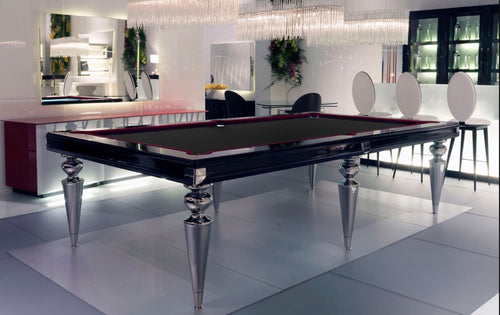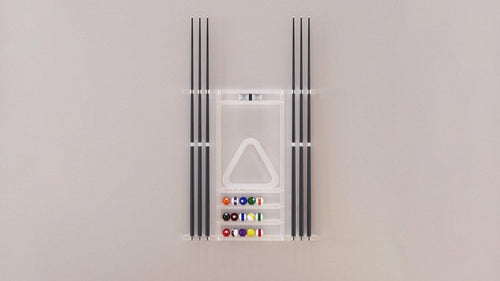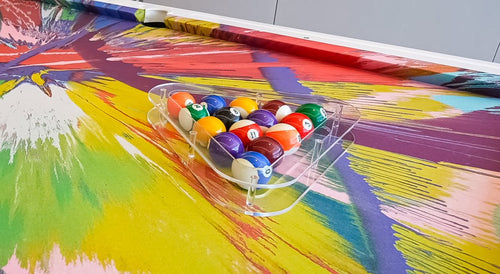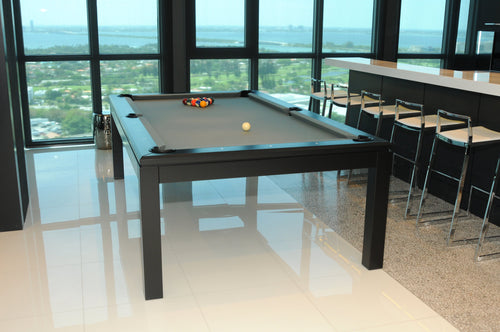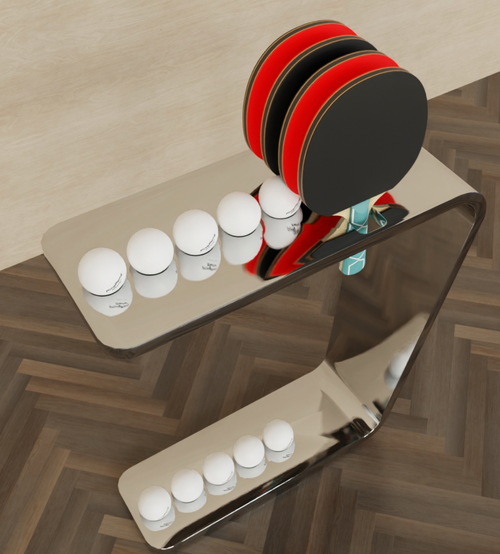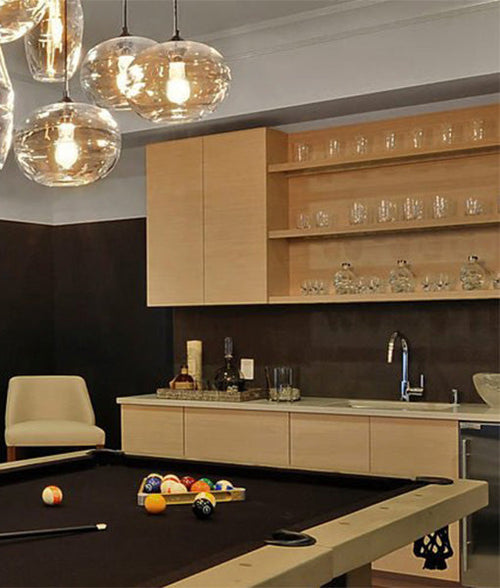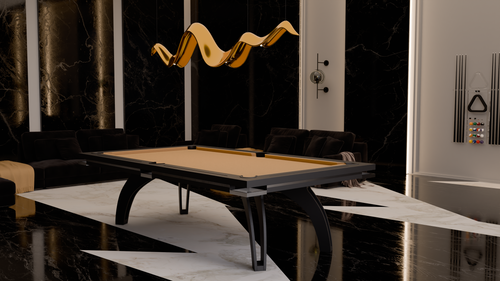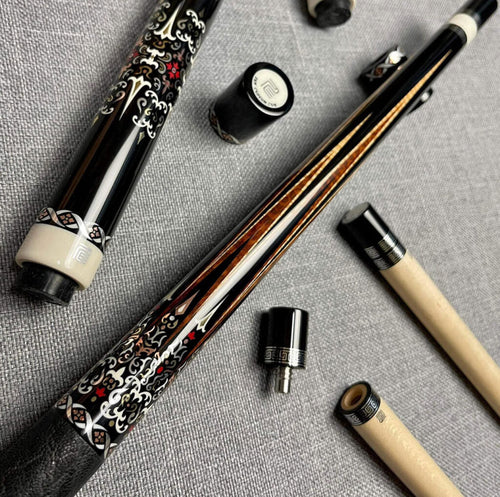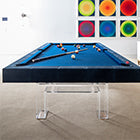Enjoy our modern designs
In high-stakes competition, your most formidable opponent often isn't the person across the table—it's the thoughts running through your own mind. Mastering the psychological aspects of pool is what separates good players from great ones, whether they've learned it intuitively or have been taught. Here are some insights to help you sharpen your psychological edge and gain consistency.
Stay Present with Every Shot
The first key to mental mastery in pool is staying in the present moment. Letting your mind drift to the outcome of the match or replaying a missed shot creates mental noise, leading to a feedback loop of negativity as mistakes pile up. Train yourself to approach each shot independently of the last; each shot is its own game. For example, use a mental reset cue like taking a deep breath or visualizing a clear break between shots to help refocus. By focusing on your breathing before each shot, you center yourself and direct your mind toward the immediate task at hand—the shot you're about to make.
Picture the Path to Success
Visualization is one of the most effective mental tools in any serious pool player's arsenal. Before you take a shot, close your eyes for a moment and visualize the cue ball rolling along the intended path, striking the object ball, and pocketing it cleanly. Imagine the sound of the ball sinking into the pocket. By picturing a successful outcome, you program your body to perform in alignment with what your mind has visualized. This technique is foundational to methods like the ghost ball aiming system and other strategies that rely on mental imagery. It might sound simple, but athletes at the highest level use visualization because it works.
Control Negative Thoughts
Pool can be unforgiving—everyone has experienced that crucial shot that goes wrong. The key to overcoming these moments is not letting negative thoughts take over. Replace thoughts like "I can't afford to miss this shot" with neutral or positive ones, such as "I will play the best game I can." Positive or neutral thoughts help reduce anxiety and keep your mind clear, allowing you to perform at your best. Remember, the more weight you give to a mistake, the more likely it will affect the rest of your game. Instead, learn to acknowledge a bad shot without judgment, understand what went wrong, and move forward.
Establish a Routine: Find Your Mental Rhythm
Establishing a pre-shot routine is critical for consistency, increasing muscle memory, and reducing anxiety. This can be as simple as chalking your cue, visualizing the shot, taking a breath, and then stepping into the shot. When you create a consistent sequence, it serves as a cue for your brain to get into the zone. This rhythmic approach helps eliminate doubts and nervous energy, giving you a steady foundation from which to perform your best. For example, tennis player Rafael Nadal is famous for his meticulous pre-serve routine, which helps him maintain focus and composure under pressure.
Handle Pressure with a Process-Oriented Mindset
In pool, clutch moments are inevitable—shots that could mean the difference between winning and losing. To perform well under pressure, focus on the process rather than the outcome. When the stakes are high, think about the steps: aiming correctly, keeping your stroke smooth, and following through. By concentrating on the mechanics, you detach yourself from the fear of failing. The outcome will follow if you trust your preparation and stick to your process. You may notice a recurring theme with these pieces of advice: staying grounded in the present moment and focusing on what you can control.
Harness the Power of Self-Talk
What you say to yourself during a game has a direct impact on your performance. The best players have an inner monologue that supports their game. They tell themselves, "I can do this," or "I know this shot." If you catch yourself engaging in negative self-talk, stop and reframe it. Remember, pool is a game of confidence, and you need to be your own best supporter.
Learn to Let Go
Letting go of mistakes is one of the hardest aspects of mastering the mental side of pool. Whether you scratch on a break or miss an easy shot, it's important to let it go. Dwelling on errors only invites more tension, which can negatively affect your next shot. A simple mantra like "Next shot, next chance" can help you shift focus back to what matters: the next opportunity to succeed.
In The End
The psychological side of pool is just as important as the technical skills. By staying present, visualizing success, controlling negative thoughts, establishing a solid pre-shot routine, and maintaining a process-oriented mindset, you can improve not just how you play but also how you feel while playing. Remember, confidence isn't built in a day, but with consistent mental work, you'll find yourself getting better and enjoying the game even more. Keep your mind in check, and watch your game reach new levels.



